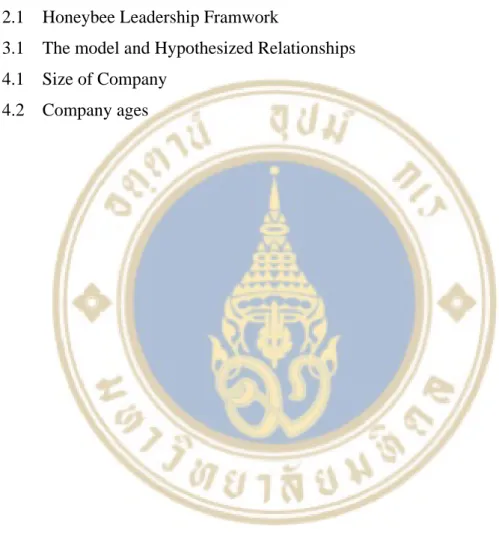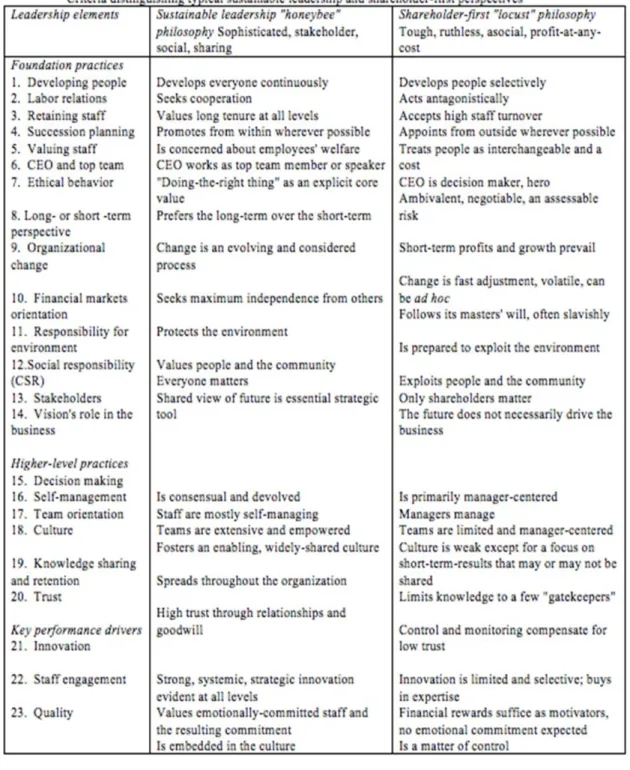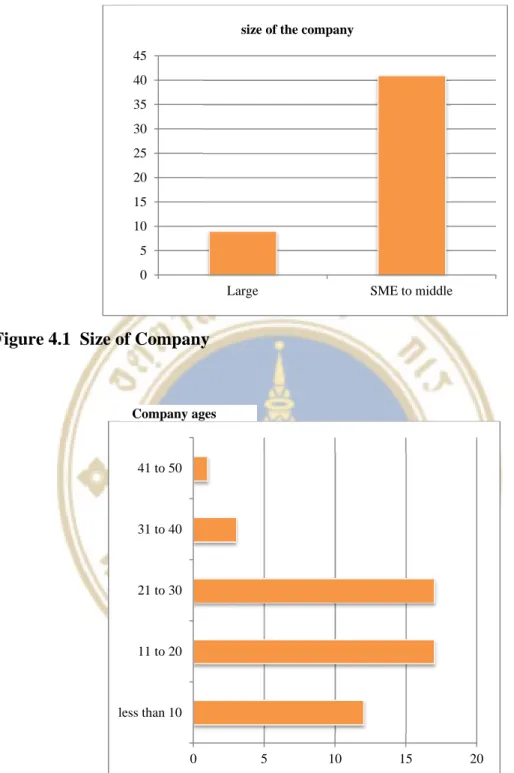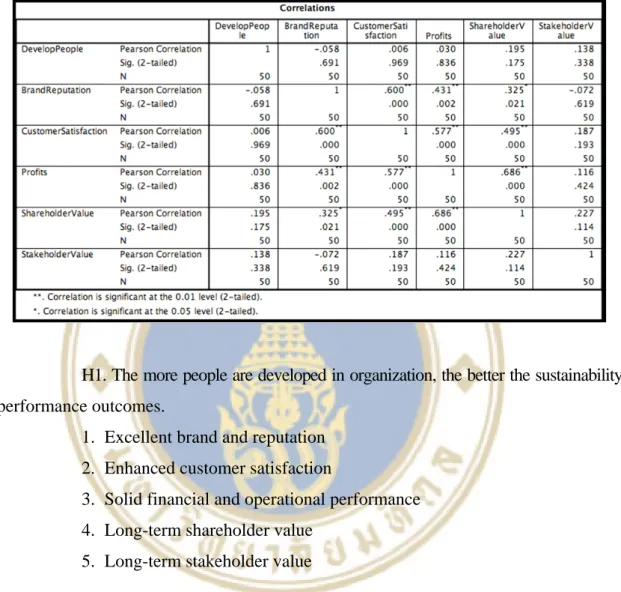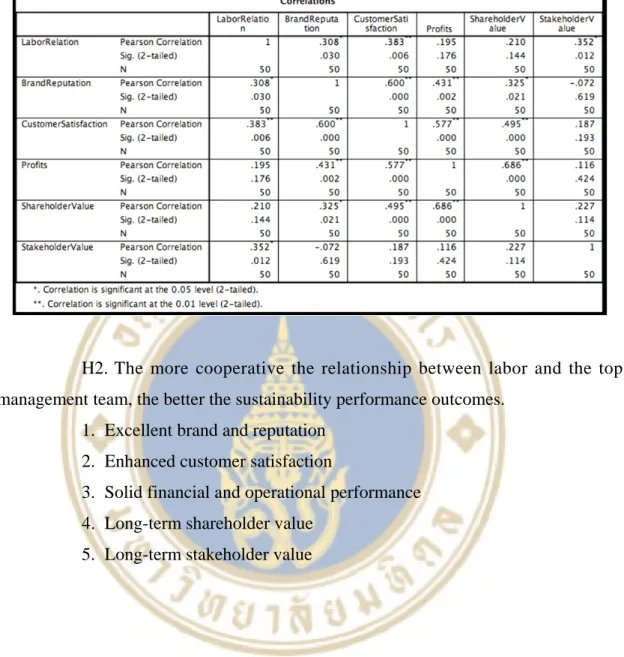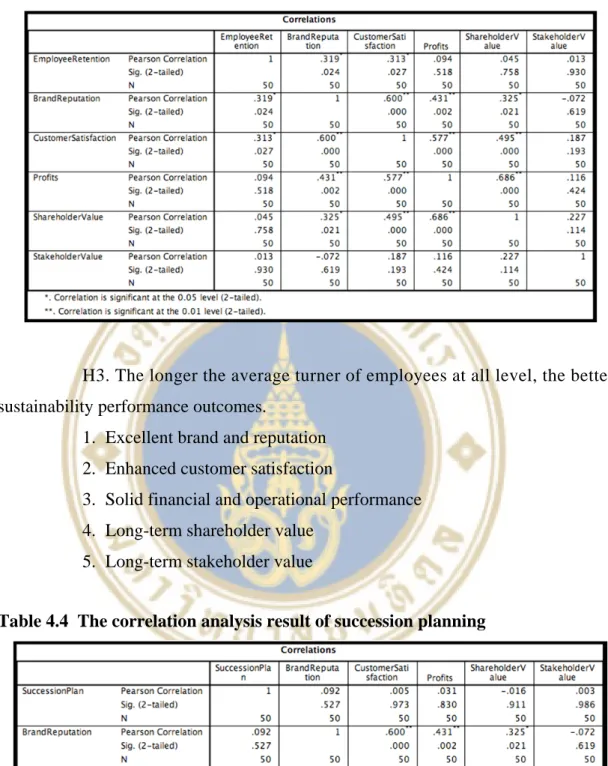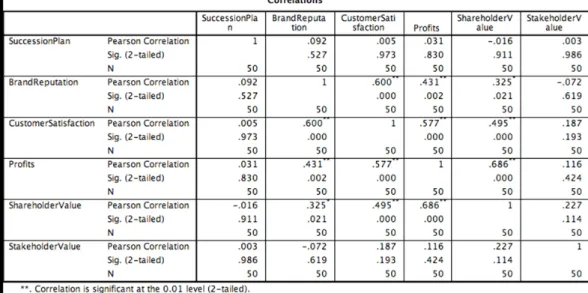I also thank all my friends who always teach me and gave me a useful advice and suggestion in my thematic paper. This thematic paper is based on the interesting on sustainable leadership in organization in Thailand. The aim is to know how sustainability is in the Thai company by using the Hypothesis to find the correlation between the factors or variables that interested the company following the theory of Aj.
This thematic paper focused on the agricultural industry, which is the rice mill factory because there are many interesting factors in the rice mills for example, most of the rice mill factory run by family business. Therefore, this thematic paper will reveal the important factors and correlations that have influenced the rice milling industry. Therefore, the current study adopts Avery and Bergsteiner's concept of Sustainable Leadership, which has been supported by previous studies as a relevant approach to corporate sustainability in Thailand.
The study investigated business practices of Agricultural Industry in terms of Rice Mill Factory to determine if there is a match between Sustainable Leadership practices and those of the case company. To determine the fit, the literature on sustainable leadership in Thailand is reviewed in chapter 2.
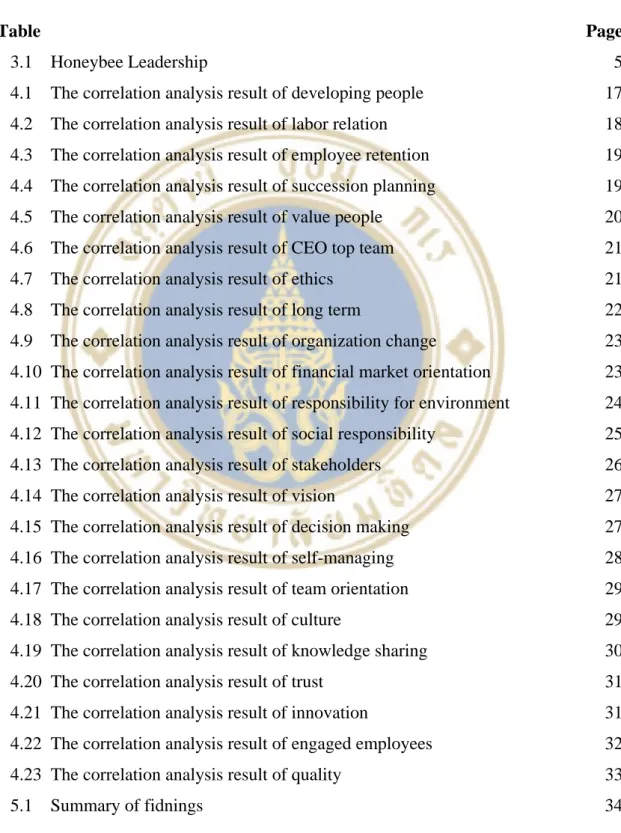
Honeybee Leadership Framework
As Sustainable Leadership has gained support in Thailand as an approach to ensure corporate sustainability and little quantitative research has been conducted on businesses in the agro-factory industry, the present study adopts the Honey Bee Leadership as a framework to examine the relationship between business practices of businesses in the proposed industry and their corporate sustainability performance outcomes.
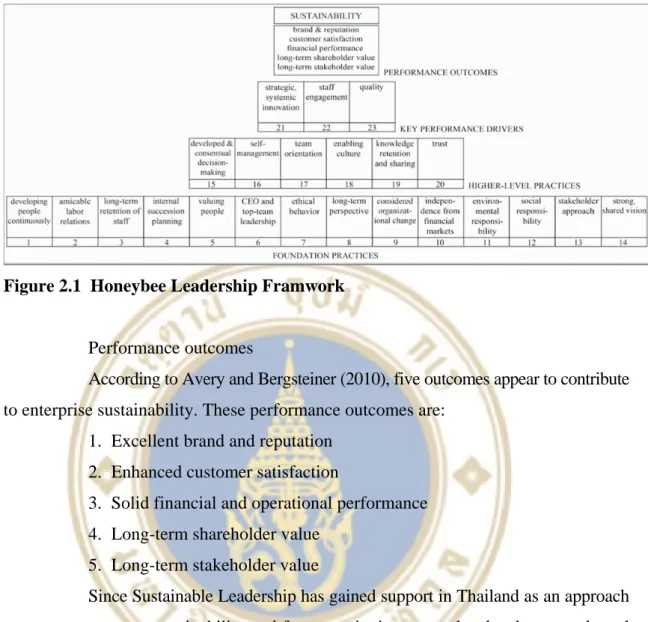
METHODOLOGY
Hypotheses
The more cooperative the relationship between labor and top management, the better the results for sustainability. The longer the average turnover of employees at all levels, the better results are achieved with sustainability. The more the company prefers the long-term perspective, the better the sustainability performance.
The more the change is addressed and managed in the organization, the better the sustainable performance results. The more a company is responsible for a wide range of stakeholders, the better the results of sustainable operations. The more people in the organization share the company's vision, the better the results of sustainable operations.
The more the culture is promoted and shared within the organization, the better results are achieved with sustainability. The more knowledge that is shared and preserved in the organization, the better results are achieved with sustainability. So the opportunities to learn more about this industry are still left and I want to know how sustainability in this industry could be and how many chances or opportunities the rice mill can also grow in the future.
The hypotheses will be tested in "Agricultural Industry" in the Rice Mill Factory Field, because mostly the rice mill factories are run in family business way, even if the big factory, they also have the same problem on how to organize people in a sufficient way in order to ' to make a long-term success in the business firm. It is difficult to change a family business to a sustainability organization, but if the organization wants to maintain their position in the market, they must adapt and start learning to focus on long-term benefit rather than short-term profit.
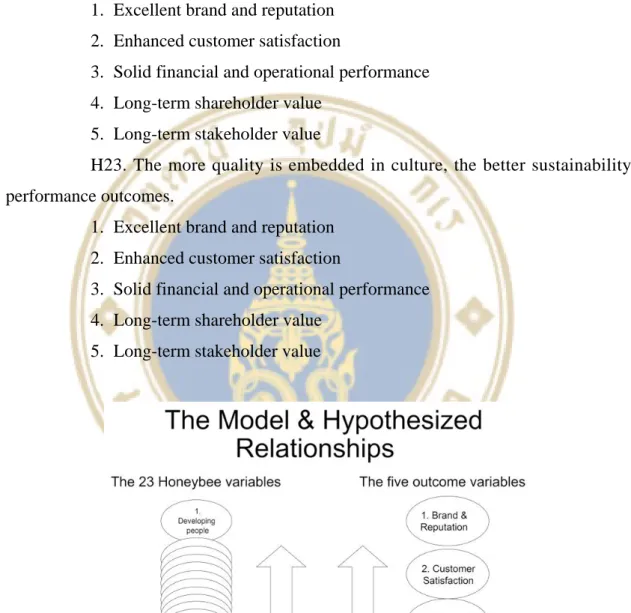
FINDINGS
Demographic Analysis
The correlation analysis
DISCUSSION
Significant findings
Refer to the summary table, the nineteen significant findings mainly focus on two performance outcomes, which are customer satisfaction and stakeholder value means that the elements have significant relationships between the variables and these outcomes. Furthermore, in the nineteen important elements, there is correlation between each element as in employment relationship, employee retention and engaged employees who are concerned about the employee in the organization. It means that the employee is the most necessary thing to run the organization, it is also related to other important findings.
Furthermore, employee variable is also related to the Stakeholder and Organizational Change because employee is the first process that carries out all performance in the organization, such as production, finance, customer satisfaction, so the stakeholder will benefit from the employee if they see the good performance in the organization has. produce. To maintain the sustainability in the organization, Value people, Culture and Vision are also important to maintain to maintain the quality good performance of employee related to employee factors again, for example, the organization should create culture that suits both CEO and employee in order. to ensure that employee feel comfortable and happy to work in this organization, they should either focus on value people due to maintaining relationship between employee and stakeholder which is very important in employees living part in the organization. In terms of how to make organization sustainable, Ethics and Long Term are also very essential because to do something right and transparent which leads to maintaining all relationships in stakeholders such as suppliers, owner and employees and all this link with Trust which is also one of the important findings.
Also in terms of organizational management, decision making, self management, knowledge sharing and innovation are part of important factors for the level of operation between manager and employee for example, mostly there are unskilled labor so the manager has to come and teach them to understand how the production process can work. In Social responsibility can make the organization more sustainable in the long term, because care for others, it is very important for the industry that sometimes it has created pollution, so it can cause local people in the near area of the factory. Therefore, the factory should take responsibility in relation to maintaining the relationship with the local population in order to get without argument about the pollution that the factory cannot change.
Non-significant findings
- Developing people
- Succession planning
- Financial market orientation
- Team orientation
All families run businesses, so their organization at a high level is always a member of the family. Since not all companies are listed in SET, it has no correlation in hypothesis testing. People in the rice mill industry can work separately because they have to control their work with the machine in the production, so they don't have much work to work as a team.
Managerial Implications
- Loyalty system
- Staff satisfaction
- Customer satisfaction
Emotion is about mental, but the owner should provide something that motivates them both internally and externally. According to the employee satisfaction, if they become high satisfied with their works, they can lead to higher quality of products and service, also the performance, then customer satisfaction will also increase.
CONCLUSIONS
APPENDICES
